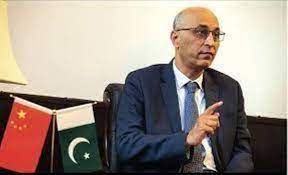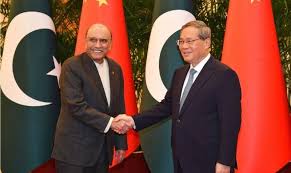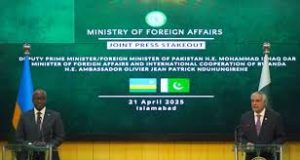Ambassador Haque stresses to impart e-commerce skills to promote Pakistan’s exports to China

Beijing: Pakistan Ambassador to China Moin ul Haque stressed the need to train talent in e-commerce to promote Pakistan’s exports to China through online platforms.
Addressing at China-Pakistan TVET (Technical and Vocational Education and Training) Cooperation and Development Seminar and the Launching Ceremony of China-Pakistan TVET Exchange and Cooperation Series Activities at Pakistan Embassy in Beijing, he acknowledged the role of TVET cooperation in capacity building in Pakistani communities as China Pakistan Economic Corridor (CPEC) construction will bring huge demand of skilled manpower in industries, ICT, and agriculture.
Ambassador Haque said that before Covid-19 pandemic, there were 28,000 Pakistani students in China which was the third largest after Thailand and South Korea.
It shows the importance of education cooperation between our two countries, he added.
He said the cooperation was not only important to build skills of Pakistani students but also to provide them a platform in the high quality and world class universities and educational institutions.
The representatives from the National Vocational and Technical Training Commission (NAVTTC), Pakistan, China Education Association for International Exchange, China Association of Higher Education, TANG International Education Group, and Beijing Global Talent Exchange Association addressed the ceremony.
On the event, two Sino-Pak dual diploma joint technical education programs under the China Cooperation + Commercial Culture + Technological Training + Education Employment” (CCTE) model were signed.
The seminar and series activities aim to improve the standard of vocational skills, socio-industrial ethics and e-commerce capability of Pakistani youth, which constitutes about 70% of Pakistan’s total population, enhance exports by cultivating talent for the Special Economic Zones, make Pakistan a regional center of excellence for vocational training by collaborating with existing state-of-the-art vocational universities and colleges, and equip the poor segment of society with specialized training to eradicate poverty.





